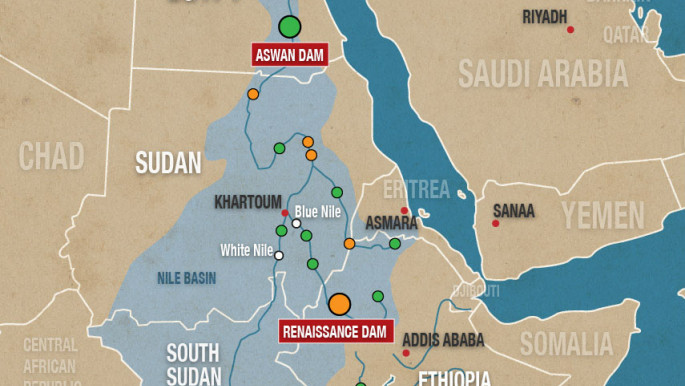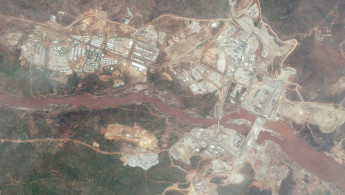Nile countries meet in Ethiopia to settle dispute over massive dam amid conflict fears
The meeting was also attended by representatives from the United States and the World Bank. It is the first round of four meetings between the three countries agreed at a previous conference in Washington on 7 November.
Egypt fears that the massive Great Ethiopian Renaissance Dam (GERD) that Ethiopia is constructing on the Nile will deprive it of life-giving water and there are concerns that a conflict between the two countries may break out if the dispute over the dam is not solved.
Ethiopian Prime Minister Abiy Ahmed, who won the 2019 Nobel Peace Prize, has previously stated that his country is prepared to mobilise one million citizens to fight for the right to build the Renaissance Dam.
The three countries plan to reach a final agreement on the dam by November 2020.
Ethiopia's Minister of Water and Irrigation, Seleshi Bekele, said that the meeting would deal with controversial issues surrounding the filling of the GERD.
Read more: Global warming threatens to sink Egypt’s second largest city
"We would like to build on previous negotiations and agreed upon political principles to iron out and resolve pending issues," he said.
Bekele also said that 69.37 percent of the dam has already been constructed and that electro-mechanical work was proceeding on course.
"We call upon the observers from US government and the World Bank to remain neutral in the course of the negotiations," Bekele added.
Egypt previously requested US mediation to solve the dispute. The Egyptian Minister of Water Resources and Irrigation, Mohammed Abdel Aty, said that the negotiations would reach "a win-win solution without causing significant harm to the parties".
"We believe a fair and balanced solution would also be helpful to Ethiopia," he added.
Sudanese Water Minister Yasser Abbas was also optimistic, saying, "The meeting would come out with a just proposal on the filling and cooperation on GERD".
The Egyptian government has been criticised at home for its handling of the issue, with Egyptian construction contractor Mohammed Ali, who previously exposed corruption by President Abdel Fattah al-Sisi, calling for the president to be executed as a traitor because of his willingness to let Ethiopia build the dam and potentially deprive Egyptian farmers of the water they need to grow food.
Follow us on Twitter and Instagram to stay connected





 Follow the Middle East's top stories in English at The New Arab on Google News
Follow the Middle East's top stories in English at The New Arab on Google News


